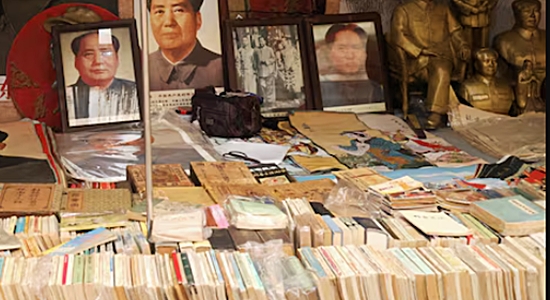
“One historian based in the U.S. said he has chosen to work on non-controversial topics to maintain travel access to China. He declined to be identified due to the sensitivity of the issue.” It seems that even study of Ming dynasty porcelain or modern cuisine can be hazardous if you publicly admit that you’re doing it to escape controversy and censorship.
Historians used to be able to find files about persecuted Chinese intellectuals and documents of the Chinese Communist Party while perusing street markets in China (“China wants academic exchange but historians say increased censorship makes research hard,” Reuters, September 13, 2024).
These were often donated by relatives of deceased officials or painstakingly rescued by booksellers from recycling centers near government offices disbanded during the mass state sector layoffs of the 1990s.
But the government has, since 2008, cracked down on flea markets and other sources of used books and documents. Buyers have been arrested, sellers have been fined and used book websites have been cleared of politically sensitive items, according to domestic media reports, collectors and four overseas researchers who spoke with Reuters.
In 2019, for example, a Japanese historian was detained for two months on spying charges after buying 1930s books on the Sino-Japanese War from a second-hand bookshop.
Two years later, a hobbyist accused of selling illegal publications from Hong Kong and Taiwan publishers on Kongfuzi, China’s biggest website for used books, was fined 280,000 yuan ($39,000) for not having a business license, Chinese media reported.
Despite all the documentation of bloody detail that Frank Dikötter was able to bring to bear when preparing his series about China under Mao, “The full picture of what was said and done in the corridors of power will be known only once the Central Party Archives in Beijing open their doors to researchers, and this is unlikely to happen in the near future,” he writes. An understatement, if the party is determined to prevent investigators from benefiting even from rummage sales.





